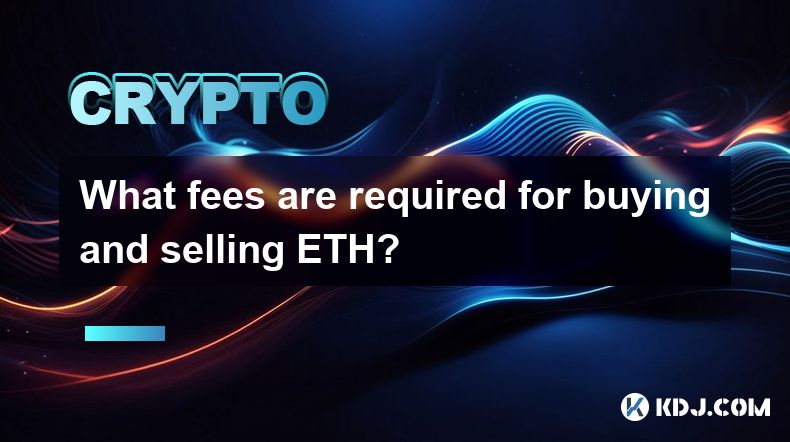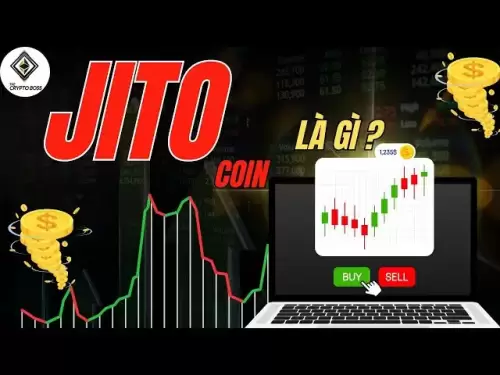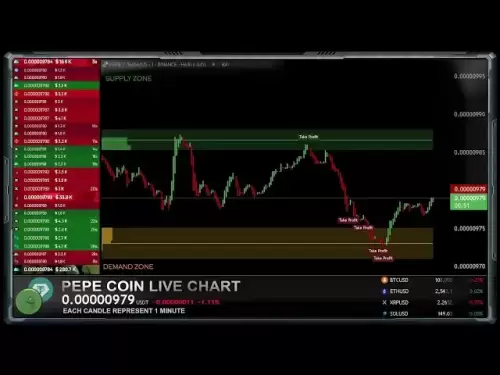-
 Bitcoin
Bitcoin $107,810.8710
-1.45% -
 Ethereum
Ethereum $2,531.4386
-1.75% -
 Tether USDt
Tether USDt $1.0000
-0.03% -
 XRP
XRP $2.2542
-0.99% -
 BNB
BNB $659.1350
-0.50% -
 Solana
Solana $148.5456
-2.40% -
 USDC
USDC $0.9999
-0.02% -
 TRON
TRON $0.2868
-0.44% -
 Dogecoin
Dogecoin $0.1666
-3.65% -
 Cardano
Cardano $0.5751
-2.36% -
 Hyperliquid
Hyperliquid $37.6845
-5.51% -
 Bitcoin Cash
Bitcoin Cash $494.9448
-0.65% -
 Sui
Sui $2.8396
-3.31% -
 Chainlink
Chainlink $13.2423
-2.59% -
 UNUS SED LEO
UNUS SED LEO $9.0482
0.02% -
 Stellar
Stellar $0.2467
-2.44% -
 Avalanche
Avalanche $17.8165
-3.63% -
 Shiba Inu
Shiba Inu $0.0...01158
-2.41% -
 Toncoin
Toncoin $2.7397
-3.42% -
 Hedera
Hedera $0.1560
-2.73% -
 Litecoin
Litecoin $85.8559
-2.34% -
 Monero
Monero $315.3710
-2.30% -
 Dai
Dai $1.0001
0.00% -
 Polkadot
Polkadot $3.3443
-2.03% -
 Ethena USDe
Ethena USDe $1.0001
0.01% -
 Bitget Token
Bitget Token $4.2888
-3.73% -
 Uniswap
Uniswap $7.3388
-1.57% -
 Aave
Aave $278.2986
-3.05% -
 Pepe
Pepe $0.0...09807
-3.67% -
 Pi
Pi $0.4563
-2.39%
What fees are required for buying and selling ETH?
When buying or selling ETH, be aware of trading fees, network fees, and other costs like deposit, spread, and conversion fees to optimize your investment strategy.
Apr 17, 2025 at 11:56 pm

When engaging in transactions involving Ethereum (ETH), it's crucial to understand the various fees you might encounter. These fees can significantly impact your overall investment strategy and the net amount you receive from your transactions. In this article, we will delve into the different types of fees associated with buying and selling ETH, including trading fees, network fees, and other potential costs.
Trading Fees on Cryptocurrency Exchanges
When you buy or sell ETH on a cryptocurrency exchange, you will typically encounter trading fees. These fees are charged by the exchange for facilitating the transaction. The structure of these fees can vary significantly from one exchange to another.
Maker and Taker Fees: Many exchanges use a maker-taker fee model. Maker fees are charged when you place an order that adds liquidity to the market, such as a limit order that does not immediately execute. Taker fees, on the other hand, are charged when you take liquidity from the market, such as when you place a market order that immediately executes. Taker fees are usually higher than maker fees.
Volume-Based Discounts: Some exchanges offer volume-based discounts, where the more you trade, the lower your fees become. This can be beneficial for active traders but might not be as advantageous for those who trade less frequently.
Withdrawal Fees: In addition to trading fees, you may also encounter withdrawal fees when you move your ETH from the exchange to a personal wallet. These fees vary by exchange and can be a flat rate or a percentage of the amount being withdrawn.
Network Fees (Gas Fees)
When you transfer ETH from one wallet to another or interact with smart contracts on the Ethereum network, you will need to pay network fees, commonly known as gas fees. These fees are paid to miners who process and validate transactions on the Ethereum blockchain.
Gas Price and Gas Limit: The total gas fee for a transaction is calculated by multiplying the gas price (the amount of ETH you are willing to pay per unit of gas) by the gas limit (the maximum amount of gas you are willing to use for the transaction). The gas price can fluctuate based on network congestion, and choosing a higher gas price can result in faster transaction processing.
Estimating Gas Fees: Most Ethereum wallets and transaction interfaces will provide an estimate of the gas fees you will need to pay. It's important to review these estimates carefully, as paying too little can result in your transaction being stuck in the mempool, while paying too much can lead to unnecessary expenses.
Other Potential Costs
Beyond trading and network fees, there are other potential costs to consider when buying and selling ETH.
Deposit Fees: Some exchanges may charge deposit fees when you fund your account, especially if you are depositing via certain payment methods like bank transfers or credit cards. These fees can vary widely depending on the exchange and the payment method used.
Spread Costs: When buying or selling ETH, you may also incur spread costs. The spread is the difference between the highest price a buyer is willing to pay (the bid) and the lowest price a seller is willing to accept (the ask). Trading within the spread can result in a small loss, which is essentially a hidden cost of trading.
Conversion Fees: If you are converting fiat currency to ETH or vice versa, you may encounter conversion fees. These fees can be charged by the exchange or by the payment processor and can vary depending on the currencies involved and the method of payment.
How to Minimize Fees
While fees are an unavoidable part of buying and selling ETH, there are strategies you can use to minimize them.
Choose the Right Exchange: Research different exchanges to find one with competitive fees that align with your trading volume and style. Some exchanges offer lower fees for certain trading pairs or for users who hold their native token.
Optimize Gas Fees: When transferring ETH or interacting with smart contracts, use tools like gas trackers to find the optimal gas price that balances speed and cost. Some wallets allow you to set a custom gas price, giving you more control over your fees.
Batch Transactions: If you need to perform multiple transactions, consider batching them into a single transaction to save on gas fees. This can be particularly useful when interacting with decentralized finance (DeFi) protocols.
Use Limit Orders: When trading on an exchange, using limit orders instead of market orders can help you avoid taker fees and potentially get a better price for your ETH.
Understanding the Impact of Fees on Your Investment
It's important to consider how fees can impact your overall investment in ETH. Even small fees can add up over time, especially for active traders.
Calculating Net Returns: When evaluating the performance of your ETH investment, be sure to factor in all associated fees. This will give you a more accurate picture of your net returns.
Long-Term vs. Short-Term Trading: The impact of fees can vary depending on your trading strategy. Long-term investors may be less affected by trading fees, as they tend to buy and hold their ETH for extended periods. Short-term traders, on the other hand, may need to be more mindful of fees, as they can significantly erode profits from frequent trades.
Tax Implications: In some jurisdictions, fees paid for buying and selling ETH may be tax-deductible. It's advisable to consult with a tax professional to understand how fees can affect your tax obligations.
Frequently Asked Questions
Q1: Can I avoid paying gas fees when transferring ETH?
A1: It is not possible to completely avoid paying gas fees when transferring ETH on the Ethereum network, as these fees are necessary to incentivize miners to process and validate transactions. However, you can minimize gas fees by choosing the right time to transact, using gas trackers, and optimizing your gas price and limit.
Q2: Do all exchanges charge the same trading fees for ETH?
A2: No, trading fees for ETH can vary significantly from one exchange to another. Some exchanges may offer lower fees for certain trading pairs, while others may provide volume-based discounts or fee structures that reward users for holding their native token.
Q3: Are there any hidden fees I should be aware of when buying and selling ETH?
A3: While most exchanges are transparent about their trading and withdrawal fees, there can be hidden costs such as spread costs when trading within the bid-ask spread. Additionally, some payment methods may incur deposit fees or conversion fees that are not immediately apparent.
Q4: How can I track and manage my fees when trading ETH?
A4: To effectively track and manage your fees when trading ETH, you can use trading journals or specialized software that logs your transactions and calculates associated fees. Additionally, many exchanges provide detailed transaction histories that include fee breakdowns, which can help you monitor your costs over time.
Disclaimer:info@kdj.com
The information provided is not trading advice. kdj.com does not assume any responsibility for any investments made based on the information provided in this article. Cryptocurrencies are highly volatile and it is highly recommended that you invest with caution after thorough research!
If you believe that the content used on this website infringes your copyright, please contact us immediately (info@kdj.com) and we will delete it promptly.
- Pump.fun's PUMP Token and Gate.io: A $4 Billion Meme Coin Gamble?
- 2025-07-08 16:30:12
- DigitalX, BTC Holdings, Funding Secured: Aussie Crypto Firm Goes Big on Bitcoin
- 2025-07-08 17:10:12
- Acquire.Fi: Navigating the Web3 M&A Landscape as a Consultant
- 2025-07-08 16:30:12
- Chainlink (LINK) Price Analysis: Navigating Uncertainty with Analysts' Insights
- 2025-07-08 16:50:12
- Rare 50p Coins Spark Bidding Wars: Are You Sitting on a Goldmine?
- 2025-07-08 16:50:12
- Iron Maiden's 50th Anniversary Gets Royal Treatment with Limited Edition Coin
- 2025-07-08 16:55:12
Related knowledge

How to customize USDT TRC20 mining fees? Flexible adjustment tutorial
Jun 13,2025 at 01:42am
Understanding USDT TRC20 Mining FeesMining fees on the TRON (TRC20) network are essential for processing transactions. Unlike Bitcoin or Ethereum, where miners directly validate transactions, TRON uses a delegated proof-of-stake (DPoS) mechanism. However, users still need to pay bandwidth and energy fees, which are collectively referred to as 'mining fe...

USDT TRC20 transaction is stuck? Solution summary
Jun 14,2025 at 11:15pm
Understanding USDT TRC20 TransactionsWhen users mention that a USDT TRC20 transaction is stuck, they typically refer to a situation where the transfer of Tether (USDT) on the TRON blockchain has not been confirmed for an extended period. This issue may arise due to various reasons such as network congestion, insufficient transaction fees, or wallet-rela...

How to cancel USDT TRC20 unconfirmed transactions? Operation guide
Jun 13,2025 at 11:01pm
Understanding USDT TRC20 Unconfirmed TransactionsWhen dealing with USDT TRC20 transactions, it’s crucial to understand what an unconfirmed transaction means. An unconfirmed transaction is one that has been broadcasted to the blockchain network but hasn’t yet been included in a block. This typically occurs due to low transaction fees or network congestio...

How to check USDT TRC20 balance? Introduction to multiple query methods
Jun 21,2025 at 02:42am
Understanding USDT TRC20 and Its ImportanceUSDT (Tether) is one of the most widely used stablecoins in the cryptocurrency market. It exists on multiple blockchain networks, including TRC20, which operates on the Tron (TRX) network. Checking your USDT TRC20 balance accurately is crucial for users who hold or transact with this asset. Whether you're sendi...

What to do if USDT TRC20 transfers are congested? Speed up trading skills
Jun 13,2025 at 09:56am
Understanding USDT TRC20 Transfer CongestionWhen transferring USDT TRC20, users may occasionally experience delays or congestion. This typically occurs due to network overload on the TRON blockchain, which hosts the TRC20 version of Tether. Unlike the ERC20 variant (which runs on Ethereum), TRC20 transactions are generally faster and cheaper, but during...

The relationship between USDT TRC20 and TRON chain: technical background analysis
Jun 12,2025 at 01:28pm
What is USDT TRC20?USDT TRC20 refers to the Tether (USDT) token issued on the TRON blockchain using the TRC-20 standard. Unlike the more commonly known ERC-20 version of USDT (which runs on Ethereum), the TRC-20 variant leverages the TRON network's infrastructure for faster and cheaper transactions. The emergence of this version came as part of Tether’s...

How to customize USDT TRC20 mining fees? Flexible adjustment tutorial
Jun 13,2025 at 01:42am
Understanding USDT TRC20 Mining FeesMining fees on the TRON (TRC20) network are essential for processing transactions. Unlike Bitcoin or Ethereum, where miners directly validate transactions, TRON uses a delegated proof-of-stake (DPoS) mechanism. However, users still need to pay bandwidth and energy fees, which are collectively referred to as 'mining fe...

USDT TRC20 transaction is stuck? Solution summary
Jun 14,2025 at 11:15pm
Understanding USDT TRC20 TransactionsWhen users mention that a USDT TRC20 transaction is stuck, they typically refer to a situation where the transfer of Tether (USDT) on the TRON blockchain has not been confirmed for an extended period. This issue may arise due to various reasons such as network congestion, insufficient transaction fees, or wallet-rela...

How to cancel USDT TRC20 unconfirmed transactions? Operation guide
Jun 13,2025 at 11:01pm
Understanding USDT TRC20 Unconfirmed TransactionsWhen dealing with USDT TRC20 transactions, it’s crucial to understand what an unconfirmed transaction means. An unconfirmed transaction is one that has been broadcasted to the blockchain network but hasn’t yet been included in a block. This typically occurs due to low transaction fees or network congestio...

How to check USDT TRC20 balance? Introduction to multiple query methods
Jun 21,2025 at 02:42am
Understanding USDT TRC20 and Its ImportanceUSDT (Tether) is one of the most widely used stablecoins in the cryptocurrency market. It exists on multiple blockchain networks, including TRC20, which operates on the Tron (TRX) network. Checking your USDT TRC20 balance accurately is crucial for users who hold or transact with this asset. Whether you're sendi...

What to do if USDT TRC20 transfers are congested? Speed up trading skills
Jun 13,2025 at 09:56am
Understanding USDT TRC20 Transfer CongestionWhen transferring USDT TRC20, users may occasionally experience delays or congestion. This typically occurs due to network overload on the TRON blockchain, which hosts the TRC20 version of Tether. Unlike the ERC20 variant (which runs on Ethereum), TRC20 transactions are generally faster and cheaper, but during...

The relationship between USDT TRC20 and TRON chain: technical background analysis
Jun 12,2025 at 01:28pm
What is USDT TRC20?USDT TRC20 refers to the Tether (USDT) token issued on the TRON blockchain using the TRC-20 standard. Unlike the more commonly known ERC-20 version of USDT (which runs on Ethereum), the TRC-20 variant leverages the TRON network's infrastructure for faster and cheaper transactions. The emergence of this version came as part of Tether’s...
See all articles

























































































